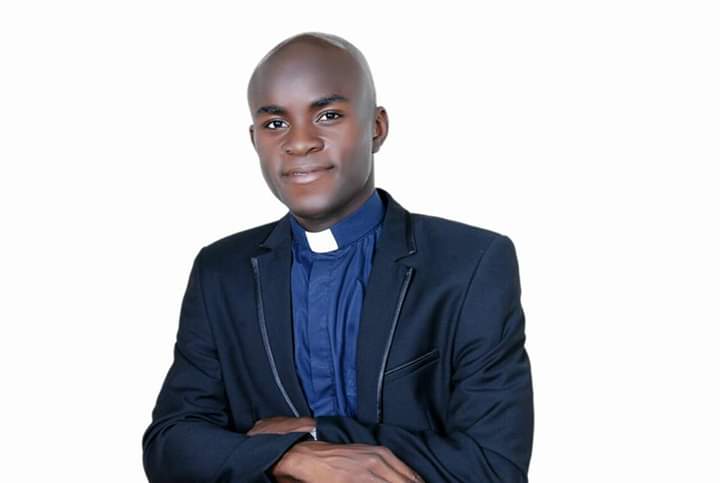Homilies & Reflections
18th Sunday In Ordinary Time, Year B, By Rev. Fr. Lucas Binnah Junior
1st Reading: Exodus 16:2-4. 12-15 /Responsorial Psalm: Psalm 78:3.4bc.23-24.25.54 (R. 24b) 2 nd Reading: Ephesians 4:17.20-24 /Gospel Acclamation: Matthew 4:4b /Gospel: John 6:24-35
Theme: To Live Is Christ
The world in which we live is bedevilled with a lot of problems. Needless to point out is the havoc wreaked and being wreaked by the Covid-19 pandemic; other difficulties include the untold hardships of people experiencing disasters due to human activities and climate change: drought, floods, wild fires, starvation, conflict-borne migration, structural evil, poverty, disease and high[1]level corruption in official places. These are obvious and ubiquitous! Those displaced by wars and conflicts struggle to find food and water, thoughtless of the inadequate shelter and security if any! The migrant situation in places such as the Mediterranean is a graphic example. These are all ‘desert’ experiences in human life. From time to time, we too experience desert conditions in our Christian life marked by unfavourable and unfriendly atmosphere. The aridity of spiritual thirst and hunger, the dry-dusty-hot wind of temptations, the extreme cold and hot temperatures of suffering and pain, the treacherous lurking of wild animals – our enemies – and the loneliness even in the midst of the crowd are all examples with which we are very familiar!
In spite of all these, God assures us saying “I will rain bread from heaven for you” (Ex. 16:4). It is in view of God’s faithful promise to us, and his ever-abiding presence with and care for us, that today’s liturgical readings come to encourage us to stand firm and to keep holding on in life. In the first reading, Israel failed to recognise the presence of God in her desert experiences. Consequently, the people gave in to temptations and having succumbed to them, they grumbled against God and his servant Moses (cf. Ex. 16:2ff). They even preferred living in bondage under Egyptian high[1]handedness than in the freedom of the Promised Land. They murmured: “Would that we had died by the hand of the Lord in the land of Egypt, when we sat by the fleshpots and ate bread to the full; for you have brought us out into this wilderness to kill this whole assembly with hunger” (Ex. 16:3). It is common for human beings to complain in times of pain and suffering. Job’s wife suggested this to him. She even urged him to curse God (cf. Job 2:9).
Be that as it may, in the midst of suffering, let us not behave like pagans or unbelievers. St. Paul makes this clear in the second reading: “…You must no longer walk as the Gentiles walk, in the futility of their minds” (Eph. 4:17). Instead, we are to put off the old man that belongs to our former manner of life which is corrupt through deceitful lusts (cf. Eph. 4:22). We are to be renewed in the spirit of our minds, putting on the new man, created after the likeness of God in true righteousness and holiness (cf. Eph. 4:23-24). Rather than complain, we should emphasise confident trust, ardent faith and lively hope in the God who can never ever abandon his people.
Furthermore, we need to understand that, God is neither a run-away father who shirks his responsibilities nor is he subject to absenteeism and excuses. Right in the desert, the Lord was with the Israelites. God cannot simply be absent from our lives even in times of trouble, in moments of suffering, tension and confusion. That is not possible, and this is why even in our sinfulness, Christ still chose to die for us (cf. Rom. 5:8). Rather, we are the ones who abandon God and vacate his presence when we give in to sin. The God, who made a way in the Red Sea for the Israelites, is still the same God who comes to our aid every day. Also, we need to pray fervently and constantly to God. The crowd that followed Jesus petitioned him thus: “Lord, give us this bread always” (Jn. 6:34). In response, Jesus said to them, “I am the bread of life; he who comes to me shall not hunger, and he who believes in me shall never thirst” (Jn. 6:35). Notice how Jesus shifted their attention from material things to spiritual realities. He invited them into a personal, intimate, conscious and active relationship with himself. So, he personified the bread, and we know what bread/food does to the body. It gives it energy which has to be renewed daily if we are to grow, survive and live. Do we go to God on a daily basis through prayer and the Holy Scriptures? Are we united with the Lord or have given up on him? Overwhelmed by the vicissitudes of life, do we no longer pray and believe that God never fails? Do we depend on ourselves, our energies, abilities and wisdom to the extent that we exclude God in our decision making? No matter what has happened and is happening to us, we should still trust in the God of Moses. With him, we will surely smile at the storm and see the light at the end of the tunnel!
Furthermore, like the Psalmist, let us believe that the Lord really and truly “commanded the clouds above, and opened the gates of heaven, he rained down manna to eat, and gave them bread from heaven” (Ps. 78:23-24). He, who provided for the Israelites during their desert experiences, will also give us what we need to make life better, fulfilling and peaceful. In addition, let us remember that “man does not live by bread alone, but by every word that proceeds from the mouth of God” (Mt. 4:4b, Deut. 8:3). Time spent with God’s word, the Holy Scriptures, is like an oasis in a desert. It is the soul’s succour and the heart’s solace at all times. It has the inner power to change us and our situations for the better. With the Word of God and the Bread of life, that is, the liturgy of the Word and the liturgy of the Eucharist – the two inseparable parts of the Holy Mass – we are filled with divine blessings and are made anew as God’s holy people. The manna in the desert could give strength to a perishable body. However, with the Bread of Life, the Holy Eucharist, which is the Body and Blood of Christ, we are imbued with eternal life, are inebriated with heavenly mysteries and transferred from the kingdom of darkness into the kingdom of light. Even so, many of us exclude ourselves from Holy Communion
Let us remember that the manna was a prefigurement, a symbol of the Bread from heaven, Jesus Christ the Lord. Like the manna which was the nourishing presence of God to the Israelites, so also Christ, the Bread of life, is our nourishment in this life and in the afterlife. The manna sustained their existence which was limited since they still died afterwards. However, with Jesus, the Bread of life, life in the now and the hereafter is assured. In this lies the difference between mere existence and living. With Jesus, we do not merely exist; we really live to the fullest. If we assimilate the Bread of life, Jesus Christ, we will become new people transformed into a new relationship with God through the grace Christ brings. Faith in God and his Son Jesus Christ makes this possible. Thus, in union with Paul, we can confidently say: “To live is Christ” (Phil.1:21). This is so, for “In him dwells all the fullness of God in bodily form” (Col. 2:9).
Beloved in Christ, the crowd in today’s Gospel looked for Jesus because he multiplied and fed them with bread. They looked for that physical food and remained at that physical level. Jesus wanted them to look beyond what meets the eye to think about the spiritual, to reflect beyond the present onto the future and on eternity; not just to put the spotlight on the earth but to focus on heaven. Many a time, we focus all our attention on this world and neglect the things that can take us to the afterlife. According to William Barclay, ‘the person who is earthbound is living a half life; it is the person with vision, who looks at the horizon and sees the stars, who is truly alive.’ We need to look beyond what satiates our five physical senses of sight, taste, hearing, touch and smell, and pay particular attention to what can bring satisfaction to our souls. Only Jesus can give us more than this physical satisfaction. It is not food, money, wealth, power, etc. Only God can satisfy the human longing, and if we are to do well to know him in an experiential, personal, on-going and intimate relationship, we shall achieve eternal satisfaction. To this end, St. Augustine is right when he says: “You have made us for yourself O Lord, and our hearts are restless until they find rest in you!” Happy Sunday and God richly bless us! Remember: #To-Live-Is-Christ#
Sharing is caring!
Ghana Catholic News aim to provide up to date news on the Catholic Church in Ghana on various disciplines such as diocese, priesthood, programs/events, promoting of the Catholic faith, daily readings, homilies, Catechism, etc.





